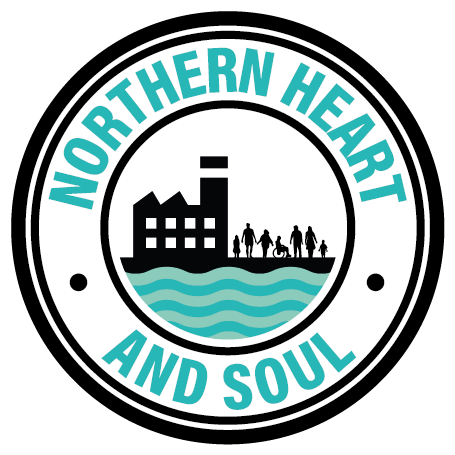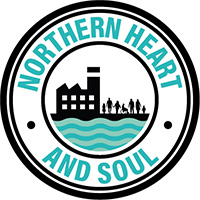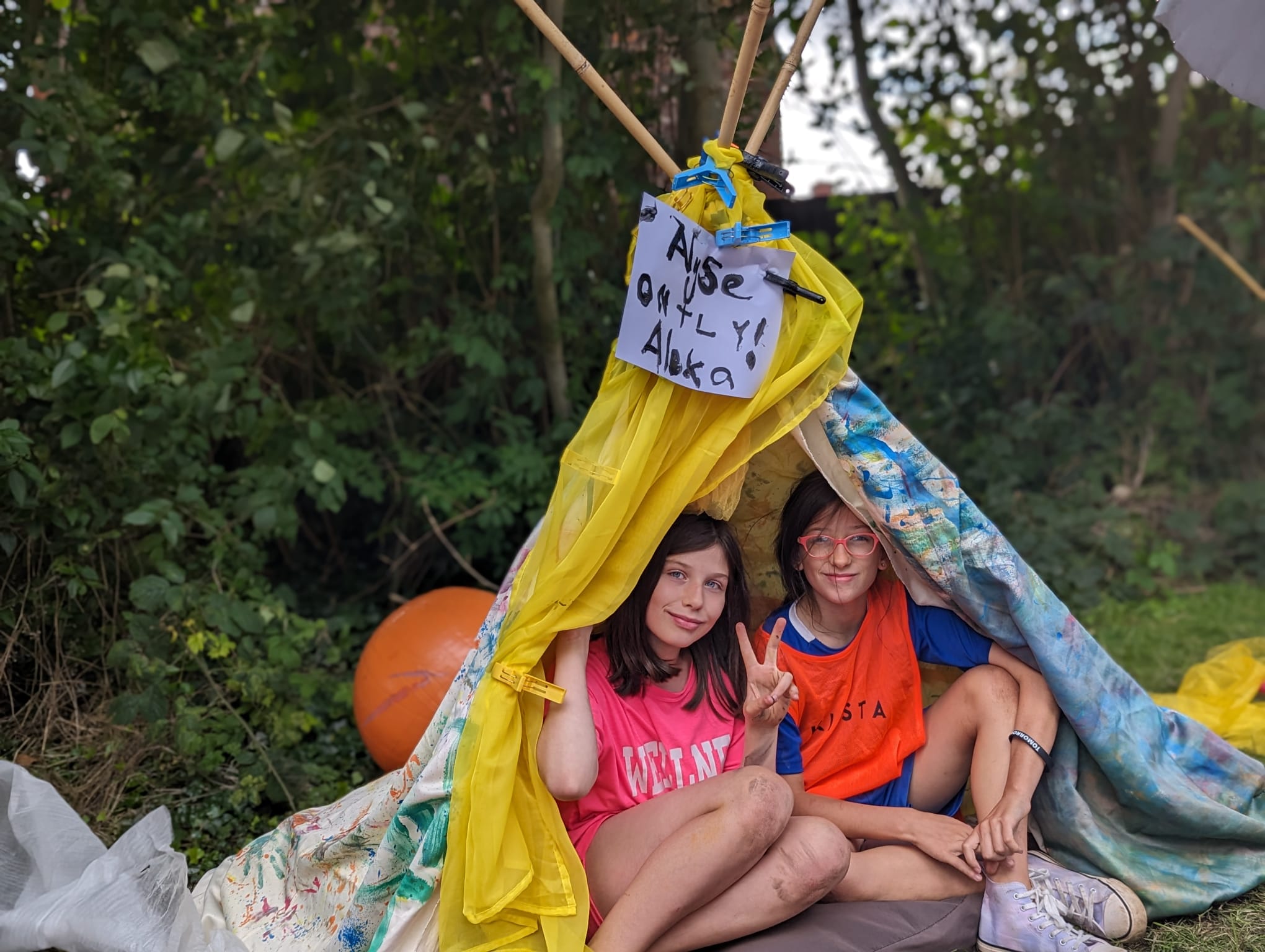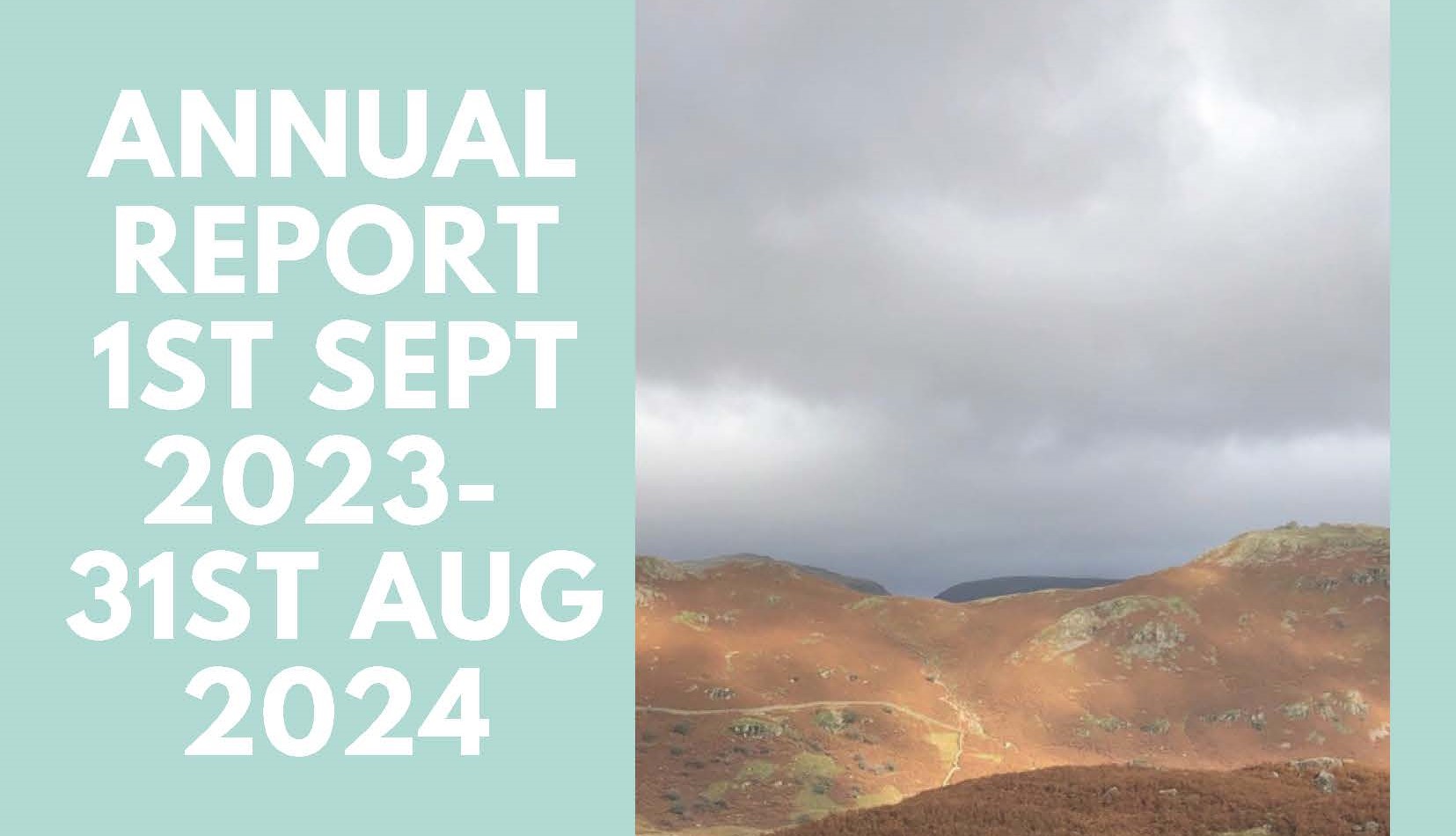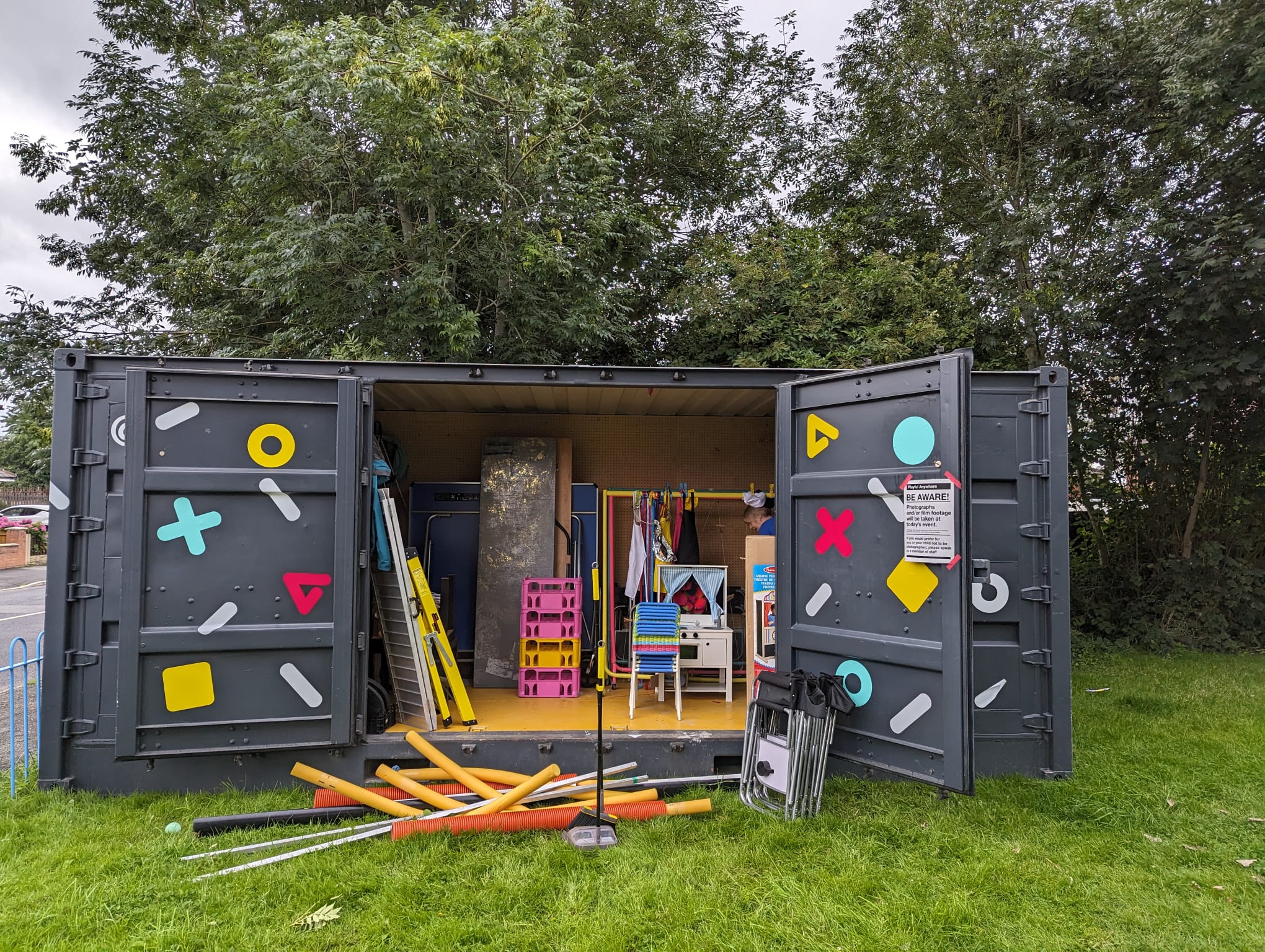
Play – The Real Work
This year we’ve a smashing community led play programme.
And to think this has only been cooking up by community members for just over a year is amazing. We’ve travelled a good distance collectively.
It all started in the WellGood socials when we began to chat together last May about what mattered to us in the community and what we cared enough about to use our collective skills to act upon.
It became crystal clear that the Beech Hill community love their children, and, creating spaces and opportunities for play and adventure is a local priority.
So last summer we said, if we care about this so much, what can we do ourselves to create space for play and adventure. And we started to do it. Just like that. We made sure that we kept it small and local to avoid any of the traps that often stunt natural growth.
We are purposefully playing the second game in the doodle below – development to community creation / production.
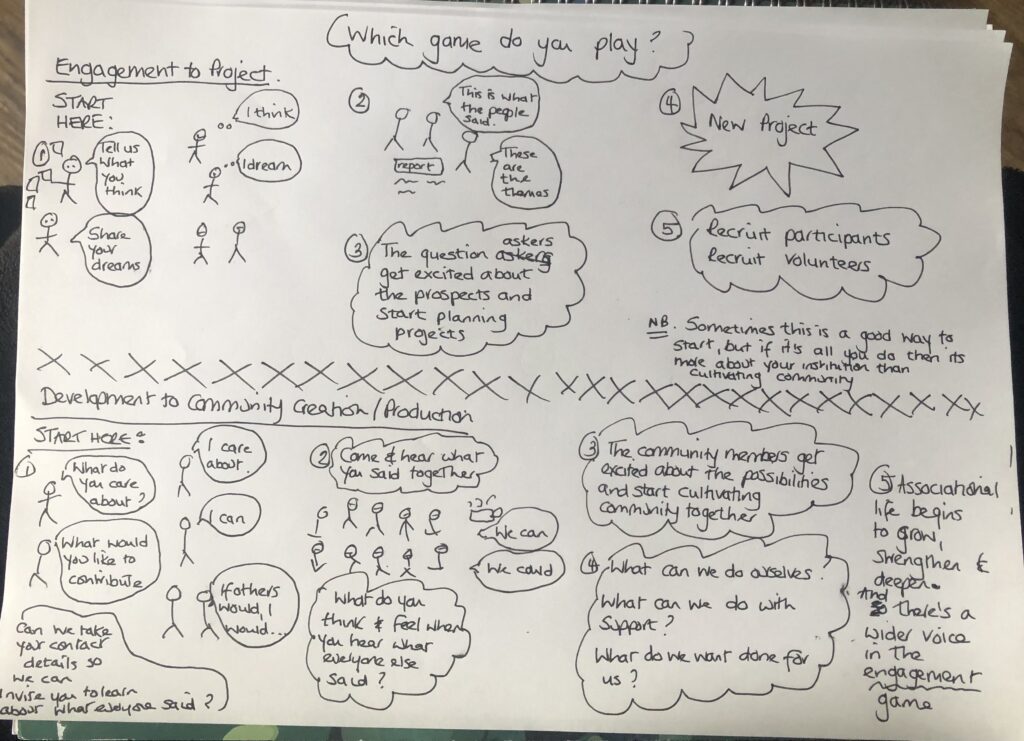
We believe that the people who live here, are best placed to host play and get this going. And the doing itself, that is being playful and joyful together, helps to collectively heal and cast off the shackles of the labels that have been internalised over years. ‘See us – look what we can do. All by ourselves.’ It enables the people and the place to be seen for what it can do, and what it has, rather than what it needs. Not left to their own devices mind you, with some good alongside support, and of course there’s room for enrichment, I’ll get to that in a bit. And I’m really not saying this is easy, or a fairy story, it’s tough long term work.
So, after summer play last year we carried on chatting, collecting stories and hosting conversation groups. We could see that play was something that was connecting and bringing the community together and we could also see and hear some worries and concerns about young people. The more we chatted about it, the more we began to realise together that there might be some connection with the way some young people were communicating and the fact that adults are less present in the streets. We often hear, ‘We don’t see police anymore.’ We rarely hear, “where have all the neighbours gone?’ We began to realise that neighbours knowing each other might be a contributory factor to keeping children and young people safe and in mischief, and, out of trouble. We were able to share memories of how this local infrastructure had contributed to keeping ourselves safer. ‘Adults were always knocking about chatting to each other.’ And we also recalled what we’d seen with our own eyes during the pandemic.
We talked too about how locally we seem to have a lot of young women who are being excluded from school, and lots of parents who feel unable to challenge the system, for a variety of reasons.
We knew we needed young people at the centre of these community conversations. We need their guidance and leadership. So this summer we’ve two youth programmes running. Make and Bake which two local CiCs are supporting – Idaraya Life and Remade CiC and Fishing which a local Grandad is stewarding at Fir Tree Fishery. It’s the beginning of a journey to create and build together community decision making and ways of being with young people at the centre. Flexible use of Holiday Activity Funding and trust from the Council department responsible have been real enablers.
This summer too, the group of women who’ve been organising the play have invited in a range of different services to enrich the summer programme. It’s as if now we know what we have, we also know what will add value – what would support, and, what we might need.
This approach, and sequence, is an alternative to more dominant ways of doing things, as you can see in the doodles below. We are seeking to centre communities, keep them on top.
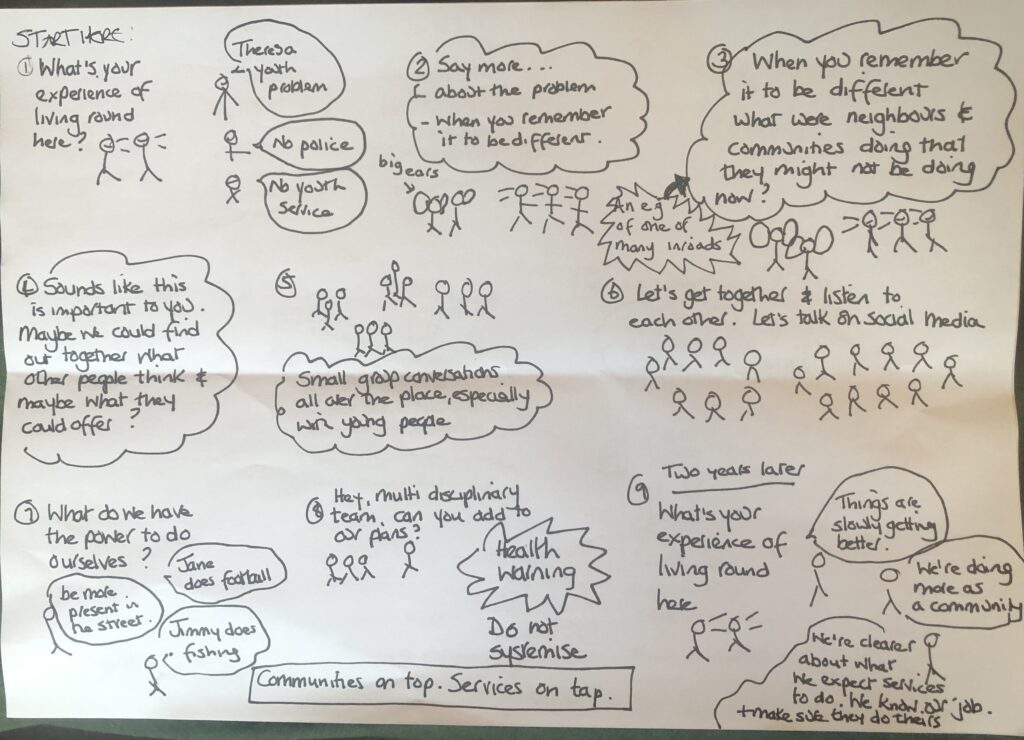
It takes longer, but we feel it is more sustainable, shifts from paternalism to producer and creator and is rooted in solidarity. We feel the dominant way unintentionally causes harm to the natural ecology of community life.
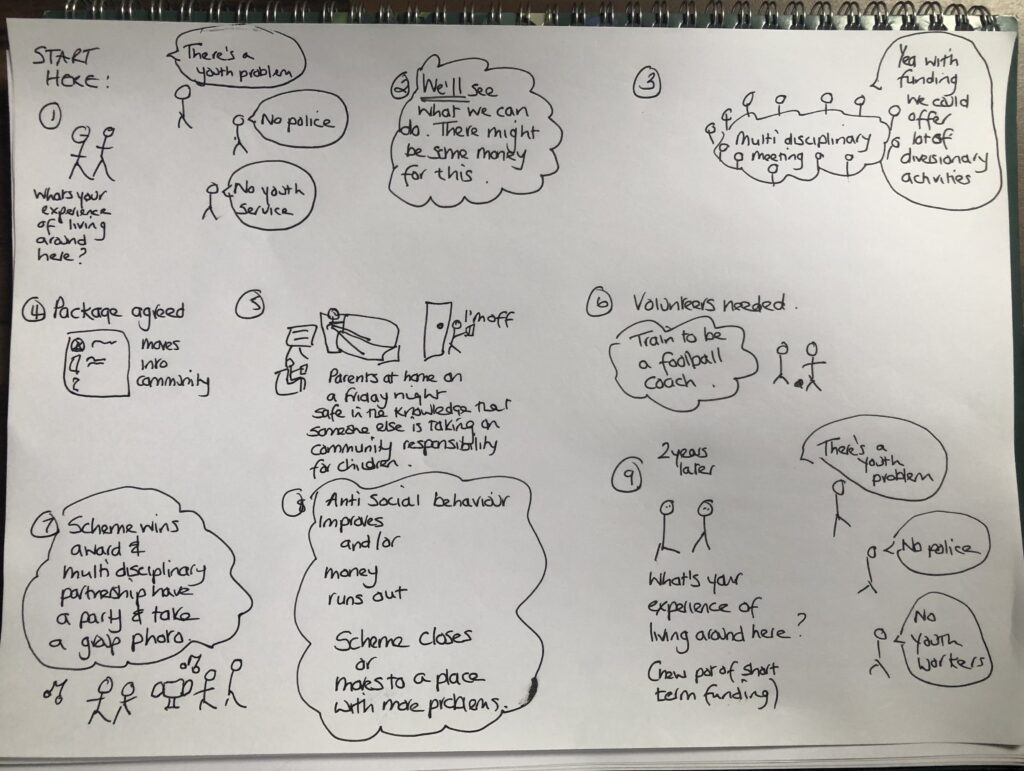
By keeping our focus on the alternative way we see it makes it possible for resources to move directly to the places that have suffered the greatest extraction. And once shifted, we’ve noticed those resources are stewarded with care or spent wisely for the common good. Thats the thesis we are demonstrating locally.
